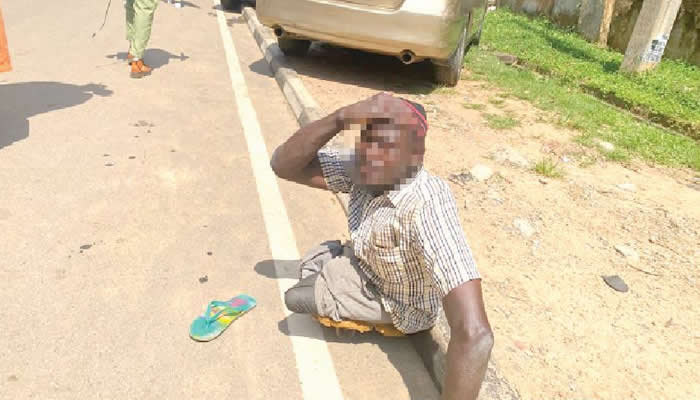We Didn't Choose This Life: Beggars React To Wike's Eviction Orders In Abuja
"We Didn’t Choose This Life: Beggars React to Wike’s Eviction Orders in Abuja"
Yakubu Haruna Yakubu
Ali Bappa, a beggar in Nigeria’s capital, expressed disbelief when he learned about the Federal Capital Territory (FCT) Minister, Nyesom Wike's recent directive to arrest beggars. “What have we done?” Bappa asked, reflecting the concern shared by many in the streets of Abuja following Wike’s announcement. The minister, during a road construction event in Katampe District, vowed to rid the city of beggars, whom he described as a growing embarrassment to the capital.
Wike’s crackdown, which starts Monday, isn’t just about cleaning up the city’s streets. It’s an effort, he claims, to restore Abuja’s dignity. He accused some beggars of being criminals and warned they had until Sunday to leave the city.
For Bappa, who has relied on begging for survival, Wike’s orders feel like a death sentence. “This situation I find myself in is not something I wanted,” he said. Blind and dependent on the generosity of strangers, Bappa questions what alternatives have been provided for those in his situation. “I can knit very well, even though I’m blind. The government should empower us instead of arresting us.”
Many beggars, like Safiyanu Bako, are already making plans to flee the city. Aware of the impending crackdown, Bako intends to return to Kebbi, his home state, to continue begging. “I don’t want any problems,” Bako admitted, noting that while he’s willing to work, no opportunities exist for people like him. “If they say we shouldn’t beg, they should give us something else to do.”
The hardships faced by beggars are often more complicated than meets the eye. Muhammed, once a thriving farmer, lost everything to bandits. After being kidnapped along with his family, he was forced to sell his livestock and farm to pay the ransom. Now, homeless and displaced, he begs in Abuja but dreams of returning to his farm—if the government can ensure safety in his state.
While some see begging as a necessity for survival, others have turned it into a business. In strategic parts of Abuja, individuals with no visible disabilities use begging as a means to exploit compassionate citizens. Residents like Philip Anjorin believe such "corporate beggars" should not only be kicked out of the city but prosecuted as well.
Wike’s move to clamp down on begging isn’t a new strategy in the FCT. Past ministers, from Muhammad Bello to Nasiru El-Rufai, have all attempted similar efforts, but beggars inevitably return. Critics, including human rights organizations, argue that simply arresting beggars does nothing to address the root causes of their plight—poverty, insecurity, and unemployment.
The Committee for the Defence of Human Rights and Amnesty International have both condemned Wike’s approach, urging the government to focus on social protections instead of criminalizing poverty. “No one chooses to be a beggar,” said Sanusi Isa, Country Director for Amnesty International. “Many are victims of years of corruption and bad policies. What they need are opportunities, not arrests.”
As Abuja braces for Wike’s crackdown, many beggars fear for their future. With no jobs, no homes, and no prospects, they wonder: where do they go from here?





















